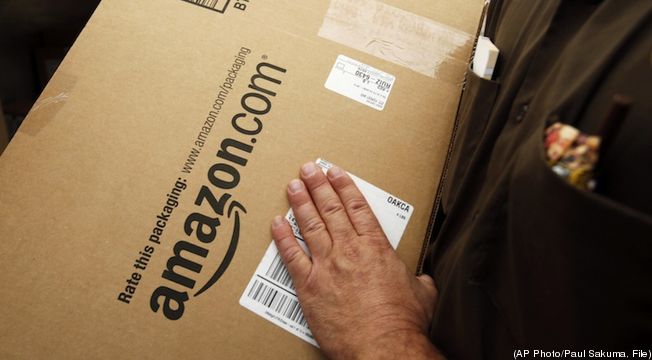In a less publicized vote from previous weeks, the Arizona House voted to require a decrease in individual income taxes once the state start collecting sales tax from online purchases.
Videos by Rare
The vote is a response to the proposed Marketplace Fairness Act, currently stalled in the House of Representatives. The MFA passed last spring in the Senate with a bipartisan 69-27 vote.
If the bill goes into law, all purchases made online will be subject to sales tax, regardless of if the store resides in the state or not.
The Arizona Star writes:
Current Arizona law requires retailers to collect the state’s 5.6 percent sales tax plus any local taxes for items sold to residents. That also covers online retailers that already have a presence in the state, like Target.
But the law also says that any Arizonan who buys a product online where the retailer does not collect the tax is supposed to report that and remit the funds directly to the state.
Enforcing that, though, has been virtually impossible, especially for individual transactions. And the result according to “bricks and mortar’’ retailers, who do have to collect sales taxes, is that they are losing business — and the state is losing needed dollars.
The federal Marketplace Fairness Act seeks to rectify that by requiring online retailers to start collecting what’s owed and pay that to the state where the items are being shipped.
The issue has divided Republicans, many who see the bill as a new tax. Many governors, however, hope that they can use the revenue from the online sales tax to decrease personal income tax, like what Arizona just voted on.
Other states have done similar things as Arizona.
Rhode Island’s governor has said he will lower the states corporate income tax and get rid of the tax on non-manufacturers’ gas and electricity.
Governor Kasich of Ohio has said once the Marketplace Fairness Act passes, he will “direct revenue from online sales tax collections to the state’s income tax reduction fund and provide a tax cut for Ohioans,” Columbus Business Journal writes.
Both Governor Walker of Wisconsin and Florida’s Governor Rick Scott have said they would support the online sales tax so that they could use the revenue to cut income tax for residents of their state.
Still, many conservatives are wary of this approach. Time and time again, taxes are raised on one thing and the promised accompanying tax cut is never realized.
But proponents of the bill argue that collecting taxes on all online purchases would encourage people to buy more things locally, keeping the revenue in the community, and not putting brick-and-mortar stores at a disadvantage to their online sales-tax-free counterparts.
Equally suspicious, however, is the online retail giant Amazon’s support of the bill. Previously opposed to an online sales tax, as they’ve expanded into more and more states, and are thus required to start collecting sales taxes for online purchases, they have changed their position and now favor the tax.
The bill currently sits in the House Judiciary Committee where Chairman Goodlatte has outlined a set of principles he will use to guide the language of the bill, should it move forward.



